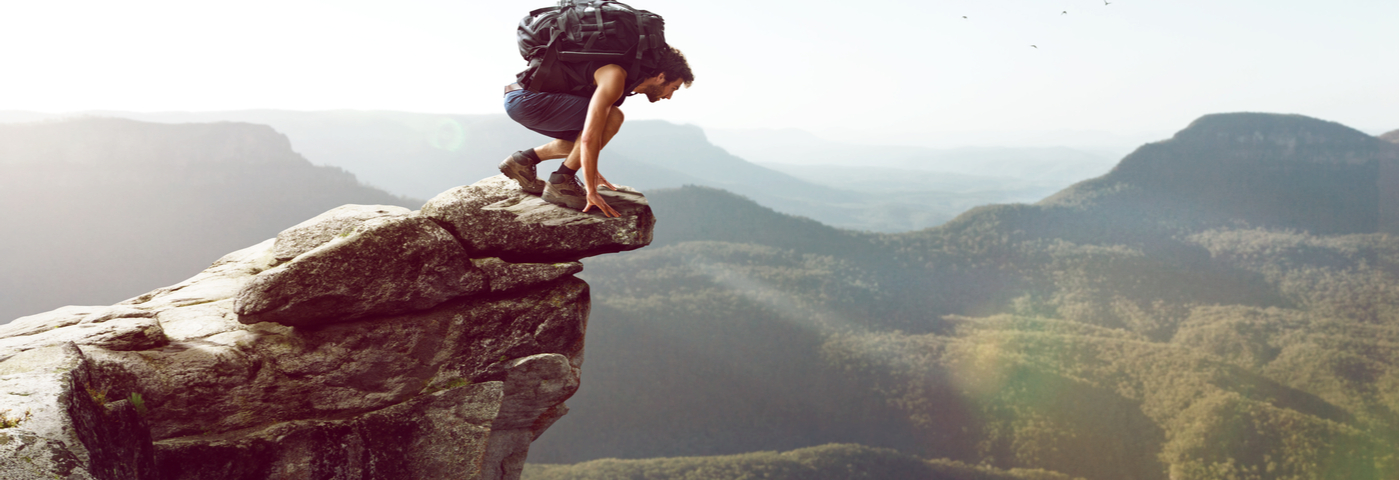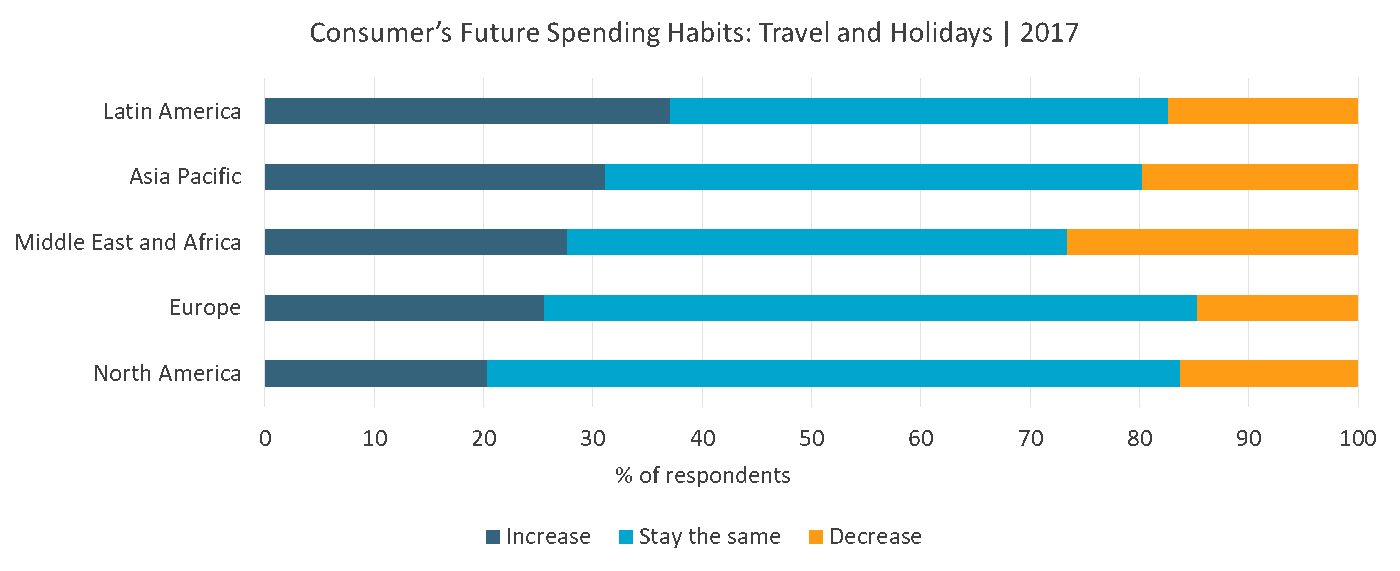by Marília Borges, Research Analyst for Euromonitor International
The Experience More megatrend indicates that consumers are spending more and more on experiences in detriment to spending on material goods, and this represents a huge potential for brands that offer value-added experiences. This is a truly global phenomenon that is permeating all sectors, products and services. Consumer spending on experiences is expected to increase from USD 5.8 trillion in 2016 to USD 8.0 trillion in 2030, with leisure, recreation, travel and food services as a proxy. In emerging regions, for example, consumers are now spending about 10% of their income on experiences.
According to Euromonitor’s 2017 Global Consumer Survey, 37% of Latin Americans indicated that they intend to increase spending on leisure travel and holidays in 2018. This is the highest response rate in all regions and also higher than the overall response rate of 29%. Travel and holidays are also the activity on which Latin American consumers are most likely to increase their spending.
Source: Global Consumer Survey 2017, Euromonitor International
Creating unique local experiences for travellers
There is a growing experiential movement, which is fuelled by the perception of consumers that experiences make them happy, which therefore makes them search for them. Companies like Airbnb, which appeal to authenticity, performed well and formed a community with their users that is based on shared interests.
Airbnb’s business model is intrinsically intertwined with the quest for what’s real and authentic, since the company’s motto emerged with the wave of travellers who wanted to “live like a local resident” instead of staying in a traditional hotel. Airbnb is the archetypal shared economy brand, which places social and human factors at the forefront and in the centre of its service offering. In looking to associate its brand with a lifestyle, Airbnb fosters a relationship of trust and loyalty with its users.
In the final balance, what will matter for brands from now on is identifying what is driving the new behaviour of those who are looking to travel. The habit of prioritizing experiences rather than material things and a greater inclination towards those brands with which consumers feel they can engage – in the sense of having a “non-commoditized” experience, but one that is also seen as authentic and customized, such as a local person might have – are key issues that players in the tourism industry should bear in mind over the next few years.
To find out more, download the Euromonitor International report that was presented at WTM Latin America 2018: https://bit.ly/2qp7KzK
About Euromonitor International
Euromonitor International is a global consumer goods and services market research and consultancy firm. With its head office in London and more than 40 years’ experience, it is the leading provider of business intelligence and strategic market analysis for companies worldwide. It offers customized research solutions and annually publishes information about performance and trends in 30 industries across 80 countries, as well as adding demographic and socioeconomic data of countries and consumers.


